Simple Living Life
It’s easy to get stuck in a chaos of consumerism and overworking. But living simply can bring us back to a place of peace and contentment. Do you ever feel like life is too chaotic, cluttered and overwhelming? You’re not alone. In this fast-paced world of ours, it can be hard to keep up – and many of us find our lives full of stress and anxiety caused by too much “stuff” and too many commitments. But there is another way. At its core, the philosophy of minimalism is about valuing experiences over things, living with intention and focusing on what matters most. From embracing simple living in the form of tiny house living, to streamlining your home organization, minimalism can help to make room for meaningful moments and a life that is truly fulfilling. So if you’re ready to take a deep breath, step back from all the busyness and make life easier and find a simpler, more satisfying life – then join us for a journey exploring all the joys that the simple living life has to offer!
Why Simple Living is so Important in a Modern World
Living a simple life means different things to different people. Generally speaking, it entails a focus on quality over quantity, purposeful living and cultivating happiness through minimalist and sustainable lifestyles. The practice of simple living is becoming ever more important in our modern world of consumerism, material possessions and entitlement. People are slowly beginning to appreciate that living simpler lives could be beneficial in many ways – and it’s true; simple living can bring you more clarity, stability, overall health, a stronger sense of awareness and appreciation for life and its offerings.
Simple living encourages conscious thought about the meaning behind life’s pleasures. It eliminates material distractions from the picture, giving people space to get back in touch with their true selves on a deeper level. When done correctly, simple living can help you assess the worth of nonessential items, or unhelpful habits that aren’t important to your overall wellbeing, or that don’t bring joy into your life such as owning too much of something, or overspending (when not necessary). There are so many ways to live that can make your life easier, and we encourage everyone to consider the benefits and begin living a simple life.
Simple living isn’t about deprivation but rather involves getting back to basics by focusing on essential tasks that bring balance in an otherwise cluttered lifestyle. Ideas like decluttering your home, reducing media consumption as well as eating healthy foods can all contribute to a happier and simpler way of life — one that allows more space for growth and potential instead of feeling bogged down by unnecessary restraints brought by modern societies luxuries. Getting rid of things you don’t need, and finding greater meaning in one’s life through simplicity, and not over complicating things. There are many tips to living a happier life, but what’s most important to itemize anything that doesn’t really add value to your life, and consider the importance of keeping them, it is possible you’ll find a great many things you really do not need.
Living simply also gives us room to rehearse gratitude, which is an extremely beneficial practice when considering mental health, among other things such as relationship building – may it be with yourself or others! Reducing stress levels goes hand-in-hand with developing an attitude of gratitude towards yourself — allowing more time to connect with those around you personally, rather than spending hours scrolling through social media! Now is the perfect time start putting these concepts into practice today, so you can begin leading a simpler lifestyle today!
Simplify Your Life – The Frenetic Lifestyle and Ideas to Combat it
Leading a frenetic lifestyle can lead to a myriad of problems and illnesses if unchecked, including feelings of stress, anxiety and depression. Constantly chasing after the newest things or trying to keep up with the Joneses can be confining and draining — yet it’s something many people do on a daily basis. Despite being driven to always want more and never achieving satisfaction, we never feel fulfilled at the end of it all. It is at this moment that we should try to consider other options. If you feel like you’re overwhelmed, and you can’t control the chaos of the life around you, then it’s time to live a more intentional life.
Minimalism — or a lifestyle centered around having fewer possessions — has recently gained popularity as people seek alternatives to their rat race ways of living. By living in an environment with fewer distractions, allowing yourself space to breathe, think more critically and make more conscious decisions enables one to lead an easier life. Minimalism encourages us to take stock of what is truly important and cast away material objects that represent any kind of burden or stifle progress towards our goals; this includes any addictions we may have developed over years. If we want life to be free of complications, and less stressful, then spend less on things you don’t need, stress less about things you can’t control and focus on the things that make us happy.
It is crucial for us to reassess why we are leading hectic lives so that we can better understand ourselves and address any underlying issues before they become full-fledged anxieties, that create more problems than they solve. If you want your life to be more fulfilling, it’s time to get started with devising a plan for the future that helps us realign our energies towards productive means that improve our overall morale instead of dampening it further by perpetuating bad habits or trappings from an outdated way of life that is stressful to maintain.
Simple Lifestyle – Minimalism and Living with Less Stuff
Simple living means different things to different people. For some, it involves paring down possessions and living with just the essentials. For others, it’s about fewer worries and stressors, such as less involvement in the rat race of the modern world. It is an individual choice, with each person approaching minimalism and “living with less” differently.
The benefits of embracing minimalism are numerous. Generally, having fewer items or possessions requires less maintenance, resulting in fewer worries and creating a chance to achieve financial freedom by having a lower cost of living. Home organization is made easier by having fewer items, resulting in less clutter and more order around the home.
In addition to financial savings, many people say that embracing simplicity and minimalism can help enhance quality of life by allowing more free time for the more meaningful aspects of life. Without all of society’s trappings vying for our attention – such as materialistic pressures or needing to maintain an out-of-date wardrobe – we can dedicate more time to meaningful pursuits like spending time outdoors or pursuing creative projects.
The minimalist lifestyle also encourages conscious consumption which can lead to developing sustainable habits with regards to overall consumption patterns, both personally and within our communities at large. This too often means not only buying fewer things but also items that have greater long-term value or that take into consideration ethical manufacturing practices or environmental sustainability when making purchase decisions.
Overall it is evident that embracing a slower way living often provides positive bonuses in terms of freeing up time for activities other than running errands; maintaining one’s possessions; becoming aware of one’s true needs verses wants; and taking into consideration procurement decision on larger scales than what previously seemed possible Often times this translates into forming deeper relationships internally with ourselves as well as externally within our communities through collective activism which further cultivates another benefit exclusive to simple living life – opportunities that encourage personal growth while uniting us all around common causes that are individually transformative while being globally advantageous!
Quality over Quantity – The Basics of Simple Living
Living a simple life is about being organized and making decisions that simplify your life. It’s about identifying what’s important to you and remaining focused on those things. Simple Living can also be defined as reducing unnecessary stress in your daily life by decluttering, minimizing possessions, creating structure, budgeting, and simply taking time for yourself.
Starting out living simply can sometimes feel overwhelming or unmanageable. There are numerous areas in which you can begin to slowly make the transition from complicated life to simple living:
1. Adapt a Minimalist Lifestyle – Take some time to evaluate your current possessions and determine how much you actually need them? You could also start displaying items around your home that bring you joy and peace.
2. Declutter – Simplifying can include physically clearing items out of closets, drawers, cabinets, and any other undesired places within your home or workspace. Clearing the clutter not only helps visually simplify but can also help with mental clarity helping you make better decisions when needed.
3. Set Boundaries – Setting up healthy boundaries in different aspects of our life such as relationships, activities and even food helps us learn better self-care practices as well as communication skills. Boundaries help us protect our energy as well create more balance in our lives while keeping connected with important relationships with family & friends while still maintaining control over ourselves
4. Create Self Care Rituals – Take some time for yourself doing activities or hobbies that help keep you nourished emotionally such as meditation or mindfulness practice , journaling , art or dance . Taking this dedicated time not only allows us to restructure but it gives us an opportunity nice spend quality time enjoying ourselves .
By taking these basic steps toward simplifying our lifestyle we are able to achieve a state of peace of mind which lets us keep our mental health healthier ultimately creating an overall happier lifestyle for ourselves!
The different ways to reduce the number of possessions you have to live a simple life
The journey to a simple life is all about creating more space, both literally and figuratively. Reducing the number of possessions can be one of the biggest drive s towards achieving that simple life. As our homes and lives become over-ridden with stuff, reducing or “decluttering” can help us to make conscious decisions about what we bring into our lives, both physically and non-physically (e.g., commitments). This improves contentment by allowing us to focus on what matters most—our relationships with family and friends and our passions in life.
The process of decluttering is best tackled systematically, starting small, such as clearing a single shelf or drawer first — it’s easierthan facing a whole room at once! Going through each item thoughtfully will help you to find peace in the decision of either keeping it or releasing it. When evaluating items for disposal ask yourself: “When was the last time I used this item? Do I really need this? Can I borrow/rent it instead of owning it? How much will my life improve by having less clutter?”
Focusing on being organized beforeyou actually begin decluttering your home is key if you want to maintain a hassle-free empty space – set up efficient systems for storing items in different spaces within your home These systems should focus on making life simpler as possible (using labels/drawers/baskets). For example – If you frequently use an item stored in closet , mark its location withadhesive label so that it is easier to access next time; further these storage places should be easily accessible such that they do not create further chaos while retrieving an item.
A mindset approach can also complement your efforts—acknowledging your effortssparking appreciation for items already owned could bring more clarity as well as making sure not to buy “just in case” but only after carefully considering if something is truly needed now—careful consideration of purchases puts focus on buying things basedon quality rather than quantity! This ensures that any future purchases are worthy investments backed by an informed decision. Furthermore practice mindfulness before buyinganything new– ask yourself whether its primary purpose fits with your values– minimalism prevents clutter accumulation significantly leadingto a satisfied feeling instead of buyer’s remorse soon after purchase!
The Tiny House movement and small space living – Minimalist Lifestyles
The Tiny House Movement has been gaining velocity over the past couple of years. Tiny homes represents a way to downsize and live more simply while also freeing up funds to explore and experience other aspects of life not possible through traditional full-time living. From tiny homes on wheels providing mobility, ease of movement, and access to greater variety of activities to more fixed stationary options like apartments or studios, tiny homes provide an alternative way for those wanting to live a simpler life.
A tiny house movement is not about deprivation but about focusing on what is important for you – family, friends, adventure or fulfilling an interest or hobby without living paycheck-to-paycheck. It allows much more headroom in finances so that these areas can be explored and there are no financial barriers stopped you from really exploring your passions in life. A tiny home can give access and freedom to explore the world around you without sacrificing comfort.
Living minimally doesn’t have to mean living in a cluttered home either as it offers you chance to own less and make better purchase decisions while avoiding consumer debt that has already mired so many people in this country. It also encourages spending time outdoors instead of inside shopping malls thus promoting better overall health with increased physical activity. Overall, the simple lifestyle offers an entirely new way of looking at future dreams and hopes through prioritizing experiences over possessions and memories rather than things all together even if it means trading free time for more money
As such, the Tiny house movements roots lie in offering an alternative lifestyle opportunity while cutting down on costs associated with metropolitan areas thus creating a viable option. Many have embraced this concept, offering strength in numbers as is ever growing community continues looking for ways to reduce their total footprint without sacrificing quality or relaxation from a day’s work
Simplify and Reduce costs with simple living – Spend Less
Simple living is about cutting back on expenses and focusing on the things that are most important to you. It’s about reducing what you have and getting rid of things that aren’t necessary or no longer bring joy into your life. This will help in paring down costs and creating a lower cost of living overall.
Simple living is not just about saving money, it’s also a way to become more conscious of what we do and why we do it. It teaches us how to spend with intention and be more mindful of our choices. When we have fewer material possessions, there is less to maintain, clean, own, secure and store. This means there are less costs associated with the upkeep of our home while offering us more freedom!
When we live simply, our lives seem to lighten up quite quickly as we focus on experiences rather than possessions. We can start to enjoy the little moments and take in the beauty around us instead of being caught up in owning material items for short-term satisfaction and long-term stress. A natural outcome from this change is a reduction in costs as spending goes down!
By leveraging simple techniques such as budgeting, tracking expenses and negotiating, you can lower your monthly bills by only paying for what you truly need or want – no more last minute shopping or impulse buys! Additionally eliminating extracurricular activities that come with high fees such as memberships or classes can be beneficial if you are looking for ways to keep expenses low without missing out on life’s true joys.
Finally curating your lifestyle with quality experiences can actually be cheaper than having numerous items laying around the house doing nothing all day – even if they do serve minor purposes like soundproofing a room or bringing life into dull parts of your home …you could consider outdoor activities like camping or gardening over buying bookshelves or throw pillows when considering ways to reduce costs!
How to find contentment and fulfillment through simple living
For many, a search for peace of mind and stability often leads to the idea of living simply. With many of us living busy and hectic lives, it can be difficult to find equilibrium and contentment. Simple living life is about balance – it’s about slowing down and taking the time to enjoy what you already have around you.
Taking a step back from our busy lifestyles is not always easy, as we can easily get stuck in the cycle of striving for more without actually achieving it or being fulfilled by our work-life balance. Simple living requires us to take that step back, acknowledge our needs and decide what really matters to us – fitting everything else into that framework.
Living simply brings with it a sense of contentment – the idea that all we need is really within reach in a balanced way – and fulfillment through all aspects of life -from comparing less (‘keeping up with the Joneses’) to spending more time connecting with people who matter most. You will naturally find yourself freeing up more time to enjoy life rather than buzzing around trying to get ahead or compare yourself with others which are ultimately unsustainable strategies for finding true happiness in life.
Simple living also promises feelings of autonomy – being comfortable making your own decisions free from peer pressure or external expectations allows us more freedom to create our own path towards true joy, finding mechanisms for self-care along the way. So when looking for rejuvenation, why not explore simple living first? As were reminded everyday; the best things in life are free!
How simple living can lead to a more meaningful life
Simple living is the practice of paring down your life to the things that bring you the most joy, replacing material possessions and activities with experiences that are more meaningful. This way of life isn’t about going without; it’s about simplifying everything in order to create more space for what really matters.
By living simply, you could have more time to focus on things that make you happy and provide deep satisfaction, such as family and friends, hobbies, travel, and exercise. By minimizing unnecessary commitments, obligations, distractions and clutter from our lives we can focus on what truly matters.
Living simply isn’t just about material possessions; it involves our daily activities. It’s beneficial to find activities or practices that bring us peace—things like meditation or journaling—and make time in our day for them. Taking simple steps such as this can profoundly reduce stress levels and offer space for greater contentment with what we already have.
Living more mindfully enables a shift of focus from the future or past to the present moment in our lives—which is where we can find true happiness. Living simply often means decluttering both physical objects—our stuff—as well as mental clutter, such as negative thoughts and beliefs,. When those are released there is no limit to how much creativity flows in! Simple living gives us a chance to have control over how we spend our time and prioritize
Practice Simple Living – Know What is Truly Meaningful
Ultimately simple living allows people to cultivate a healthier life through intentional choices which may result in greater peace of mind and wellbeing
Conclusion
Living simply is anything but simple and requires meaningful dedication, effort and discipline to provide a higher quality of life. When we prioritize our work, family, hobbies, mental health, physical health and wishes all at once a balanced life can be achieved; minimalism has both its benefits and drawbacks, the choice is for all of us to make.
The idea of living with less does not have one all-encompassing definition as it varies from person to person; multi-faceted minimalists can still live comfortable lifestyles without sacrificing their hobbies. We must continuously review our relationship with possessions and strive for balance as minimalism does not equal survival mode.
The biggest rule when practicing simple living is to never believe that you are in a race or competition with anyone else by attempting to minimize your possessions. Life changes over time and so do our needs. Minimalism should always balance those lines—and if at any point the reduction in items no longer serves you personally then adopting the philosophy of less may no longer be right for you.








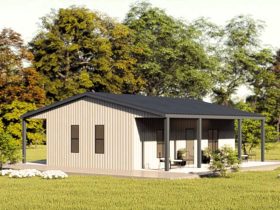

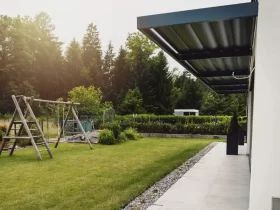
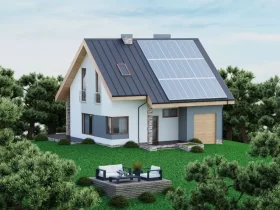
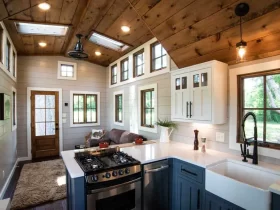
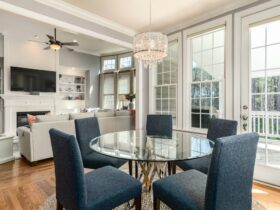
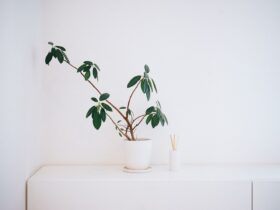

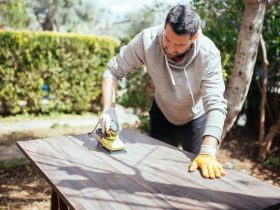
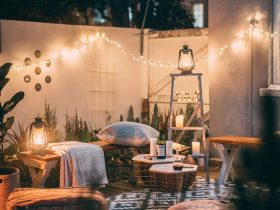
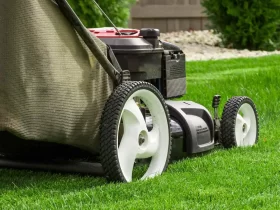
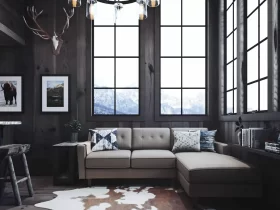
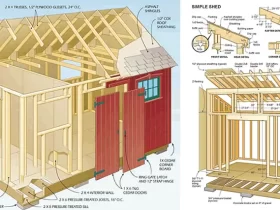
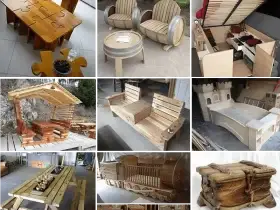

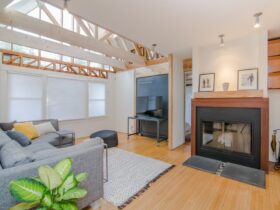




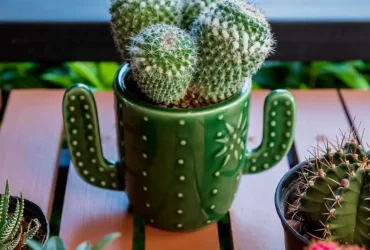
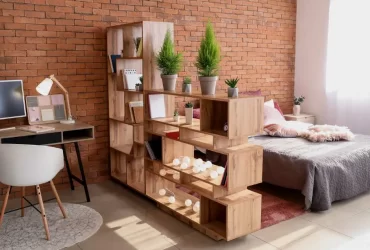
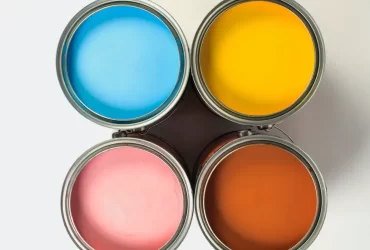
Leave a Reply